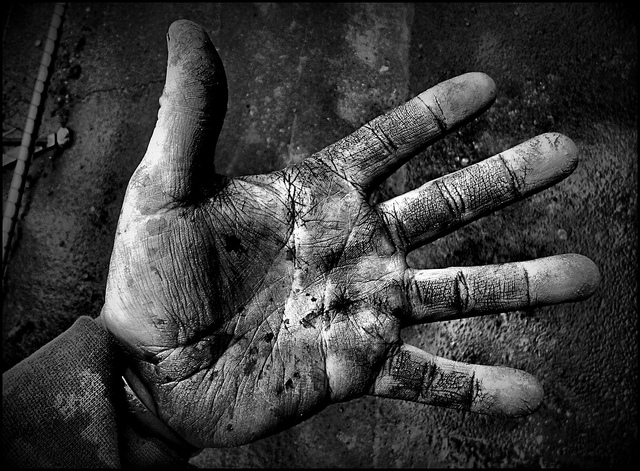When it comes to the situation in Baltimore, it is possible to say multiple things at once.
First of all, police brutality is a real, terrifying issue, particularly for the black community. The community is not making up real concerns and fear, as the in-depth investigative report by the Baltimore Sun reveals. Not only has the police brutality and excessive force caused poisoned relationships between officers and the community they serve, but it has also led to huge sums being paid out that could have been used to care for the needs of the community rather than for lawsuits. The Sun reported last fall that $5.7 million has been paid out in damages since only 2011.
Secondly, communities are often failing people of color. Education dollars get cut, food stamps get cut, parents fail to nurture their children, housing is dilapidated. People live in environments of despair and hopelessness in inner city neighborhoods. It takes a really exceptional person to produce vision for themselves in the midst of that if they have never had someone cast a positive vision in their lives. If all you had ever seen was poverty, hopelessness, crime, family dysfunction, poor educational resources, and the like, it would be really, really hard to see your way to a more positive future. Can it be done? Yes, sometimes people manage to rise above an environment of despair. But imagine how very hard it would be if you were dealing with a growling stomach, lack of love, fear of police, abuse, and a society that treated you as disposable. Not impossible, but very, very hard.
Next, just because there are reasons for the despair of those who live in inner cities does not mean that actions of violence and aggression are ok. They aren’t. Looting, violence, and arson are wrong. They are crimes against one’s own community. The problem is when we jump to judgment as our first reaction. If we can stand and look at people through the eyes of love and empathy first, we can see them as God sees them. We can refuse to react in a superior manner and instead recognize that, though boundaries need to be set in society, change will really only come through love.
We can say all of the above because, for Christians anyway, we don’t get to claim that any one side of the conflicts in Baltimore and elsewhere is without fault. We don’t get to blame everything on police or on black people or whatever. We have to say that we are all broken. We all contribute to the brokenness. Change begins not when I point the finger at somebody else, but when I begin with a deep heart-search myself, when I ask how I am contributing to the problem. Change begins when I ask myself not only how my attitudes need to change but how my part of society, my corner of the world, is contributing to the problem. Change begins when I address how my contribution to the systems of society needs to change. How can I be an influence for life and not death? How can I bring the resurrection life of Jesus (my lens because I am a Christian, of course) to bear in the world? How can I help beauty and good to flourish? Change begins with me. With my kind.
Finally … this: As I look at the community in Baltimore, I learn so much from some of the most fantastic, beautiful, compelling leaders I’ve ever seen. I am in awe of the pastors, the mature Christian men, the Nation of Islam leaders, the councilmen, the 300 Men March folks. They have been getting out on the streets and protecting both police and young people by standing between them. They have been lovingly approaching hurting youth, listening to their legitimate concerns, and encouraging them to seek change in a constructive and not destructive manner. They have been putting their own safety on the line to do this work. How easy it would be for either police or angry young people to turn on them. But they legitimately love the young people. They treat the police with respect, even as they wrestle with real concerns about police brutality. They place themselves as actual peacemakers.
Every time I see one of these amazing people on the news, I stand in awe. I am also in awe of the everyday folks who refuse to give up hope, who gather and protest peacefully (whether or not the news media cover them), who make sandwiches for hungry people, who perform a symphony concert for free, who get up after a rough night and go out into their community with a broom and dustpan and a smile. I am in awe of these folks who do simple acts with great love. I am in awe of the deep commitment to community and to loving even those who are difficult–both police and angry, disenfranchised youth. Each time I see something these folks do, I feel as though I am getting a course in what true leadership looks like. And every time I see these folks in action, I am inspired to be the change I long to see in the world.
——————-
Community discussion guidelines:
Because this is a Christian blog, the things I’m talking about will obviously be topics that people feel strongly about in one direction or another. Please keep in mind that this is a place for substantive, respectful conversation. All perspectives are welcome to discuss here as long as all can treat each other with kindness and respect. Please ignore trolls, refuse to engage in personal attacks, and observe the comment policy listed on the right side of the page. Comments that violate these guidelines may be deleted. For those who clearly violate these policies repeatedly, my policy is to issue a warning which, if not regarded, may lead to blacklisting. This is not about censorship, but about creating a healthy, respectful environment for discussion.
P.S. Please also note that I am not a scientist, but a person with expertise in theology and the arts. While I am very interested in the relationship between science and faith, I do not believe I personally will be able to adequately address the many questions that inevitably come up related to science and religion. I encourage you to seek out the writings of theistic or Christian scientists to help with those discussions.
———————-
photo credit: Hands on ! via photopin (license)













